Why are there so many survival games? And why do we love the pain they bring?
Remember when Day Z was a fresh, exciting new spin on the video game corpse-grinding simulator? Remember how exhilarating it was to discover that the undead were just one, ambient part of a wider ecosystem of endlessly unpredictable pain? Remember how thrilling it was to find that the focus of the game was not the simple chopping through of rancid meat skittles amid various decaying towns, but rather the ever-present question of whether or not you’d survive long enough to even see one of said towns in the first place?
It’s not like that anymore. Because back then, the grand-scale survival simulator was a relatively new, alien, even experimental concept. Now though, it lurks behind the logo of seemingly every new video game that isn’t a MOBA.
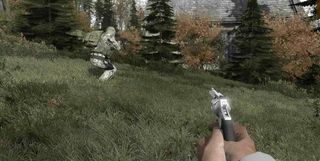
We have Rust. We have The Long Dark. We have State of Decay. We have Sir, You Are Being Hunted. We have The Organ Trail. We have Don’t Starve. We have a little thing called Minecraft. We have Project Zomboid. The majority of these have appeared in the two years since Dean Hall’s original apocalypse mod sent ARMA 2 sales through the roof. So, are we simply looking at the latest epidemic of rapid me-tooism to hit the games industry? Just another incident of a hot new idea eating its way through the development community, taking bites out of the world’s originality to produce a horde of rampaging homogeneity?
It’s certainly happened plenty of times before. For a long period, every company tried (and failed) to have its own mascot platformer match Mario and Sonic. Street Fighter 2 saw fighting games flood any device attached to a screen. Metal Gear Solid spawned a whole generation of highly variable stealth adventures in the late ‘90s, while Gears of War caused cover-shooting to even rival the first-person variety for a good few years. This sort of thing isn’t unusual. Not at all. What is perhaps surprising about this current spate of concept cloning is just how fast it has occurred, and with such a theoretically niche idea.
The above genres are all action-led, mainstream courting concepts, or at least were during their heydays. The open-ended, roguelike survival sim though? That’s a rather more challenging affair, made of uncompromising demands, and multitudinous, interlocking, sometimes oblique game systems. And let’s not forget the certain promise that at some point you will die, and that when you do--for the typically achievement-oriented, mainstream gamer at least, who cares more for the destination than the journey--all of your progress will have been for naught. That is not what little Jimmy Gunmunkee wants for Christmas. So why are these games so hot right now?

From a development perspective, the attraction is understandable. For all of the open-ended, epic scale these games often trade on, from certain perspectives they’re actually a pretty economical project to undertake. Let’s say that you’re an indie dev with limited resources. You’ve settled on making a zombie horror game. What’s the best way to go about it with the facilities you have to hand? The traditional, Resident Evil-style, survival-horror angle? Nah. That kind of linear, action-horror experience is a tough proposition. You need to build a long, narrative campaign, and all of the environments, set-pieces, and interconnecting enemy AI types that requires. You need to write a 15-hour story and make it not crap. You need a full, resonating musical score to cover that running time. You need to do all of that to a level of glossy polish that can compete with the big boys for attention.
So how about you don’t compete on the same fetid, corpse-filled playing field, thick as it is with the half-buried remains of the failed? How about if you eschew scripted pacing in favour of emergent set-pieces that the players can engineer for themselves? Yeah, you’ll need to do a fair bit of work in terms of enemy AI and overarching game systems, but once you’ve got that stuff into a decent-sized map, the spectacle will look after itself. Plus, you have the added bonus of--and this is really important for games without monolithic marketing budgets and decades of brand renown--building a long-term, dedicated community buzz around your game by nature of its open-ended, perpetually explorable scenario.
Sign up to the 12DOVE Newsletter
Weekly digests, tales from the communities you love, and more
In fact by keeping vague about things like objectives, goals and traditional, linear gameplay purposes, you add ‘free’ longevity and content rather than appearing limited in your scope. With no ‘correct’ goal, you impart no finite end point, literally or psychologically. Just give the players a toolbox and a set of parameters, set them off, and see what they come up with, again and again and again. DayZ is a completely different game depending on how you play and who you play with. Want to go on point-to-point survival roadtrips? Cool. Fancy becoming a feared legend, by taking a marauding crew across the countryside in a never-ending spree of murder and looting? You can be those guys too. You dick. And there are far more possibilities between those two extremes.
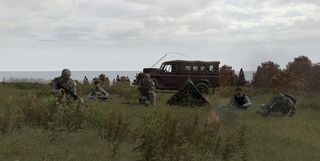
Any of these gameplay options would've made great features in a big-budget horror RPG, but DayZ’s creator didn’t have to design any of them. He simply gave his players some basic, vague tools of interaction, and watched them run off into the wilderness to build a civilisation.
Crucially, that gave them ownership of their world. Ownership and connection are incredibly important factors in keeping players playing, and they're very hard (if not impossible) to forge in a linear, AAA game. But achieve them--and couple them with a game that can never truly be over, by nature of the infinite possibilities afforded by its undefined horizons--and you’re onto a very big, very good thing indeed.
But still, none of that fully explains why we’re actually playing these things. Why do we put ourselves through it? Why, when everything the marketing men and December sales figures tell us indicates that modern gamers want simplicity and tummy-rubbing gratification, are we willingly signing up for such brutal treatment in our droves?
Well for starters, the simple fact is that there is a type of player who wants this stuff. Not necessarily a self-hating masochist who can’t enjoy any entertainment that isn’t beating the crap out of them, but a more explorative, experience-driven player who craves discovery and agency within the worlds they explore. The emergent, undefined challenges and self-driven solutions afforded by these games deliver interactions, hardships and victories of a type that the standard-issue, prescription approach of mainstream, linear gaming just doesn’t provide. The open-ended survival game might seem relatively unique in its form and methods, but in terms of the personal, emotional responses it engenders, it’s not a million miles away from the freeform exploration and self-authored storytelling of a Skyrim, or even a Grand Theft Auto 5.
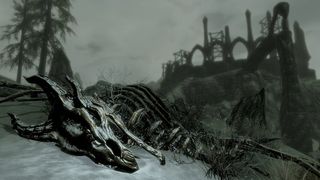
But beyond that, I reckon there’s something deeper going on. I half-jokingly remarked to Justin a while ago that we play Dark Souls because modern life is too easy. Sounds flippant, I know, but there was a definite seed of sincerity in the statement. As a species, we found our social inception as nomadic hunter-gatherer types, roaming the land, finding new homes, and plundering flora and fauna for the resources needed to help ourselves and our little groups. Sounds a bit like an MMO, doesn’t it? And as mad a leap as that might seem on the surface, you can still see the effects of that origin all the time, in the ways that people conduct themselves in the modern world. Stick with me on this one, it’s relevant, I promise.
We no longer have to fight off mountain lions, hunt wildebeest and deer, or secure cosy caves and build shelters, but the instincts that drove those acts are still in place. Some people exercise them by accruing financial wealth and conquering big business. Materialistic shopaholics fill their homes with as much unnecessary stuff as they can. Some people go ‘hunting’ on a Friday night in an attempt to tally up as many sexual partners as will have them. Others echo ancient man’s ‘hunt for three days then binge on a buffalo’ lifestyle by overeating. And others, with an arguably healthier methodology, explore challenging, unforgiving worlds in really hard video games.
Seriously, I’m not joking. Hunting for resources. Hiding from predators. Building camps and forging alliances. Optimising the supplies and skills we have in order to survive and thrive. You’ll find that all of these actions, or abstracted variants of them, appear in most of the games I listed at the top of this article. And in more traditional roguelikes, such as Rogue Legacy. And of course in Dark Souls.
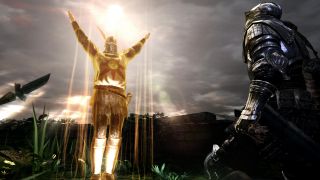
Let’s face it, video games are a leisurely entertainment pursuit. Entertainment and leisure aren’t usually synonymous with hardship and difficulty. But, consider that violent action movies seem to cathartically tickle our now out-of-place aggressive instincts. And the way that dark, bloody horror fiction stimulates the vital, fight-or-flight alertness and primal fears now so underserved by comfortable, modern life. So too do the self-reliant, hard-fought triumphs of open-ended survival games seem to innately appeal to our nature. Perhaps the seemingly self-punishing fans of these games are tapped into something that makes a great deal of sense.
Maybe they’re not insane at all. Maybe they haven’t lost the plot. Maybe they’re actually, in a weird sort of way, actually more in tune with their natural calibration than most.
Or, you know, perhaps they’re just trying to wave around their e-peen with some tough Achievements. Could go either way. But the potential is there.
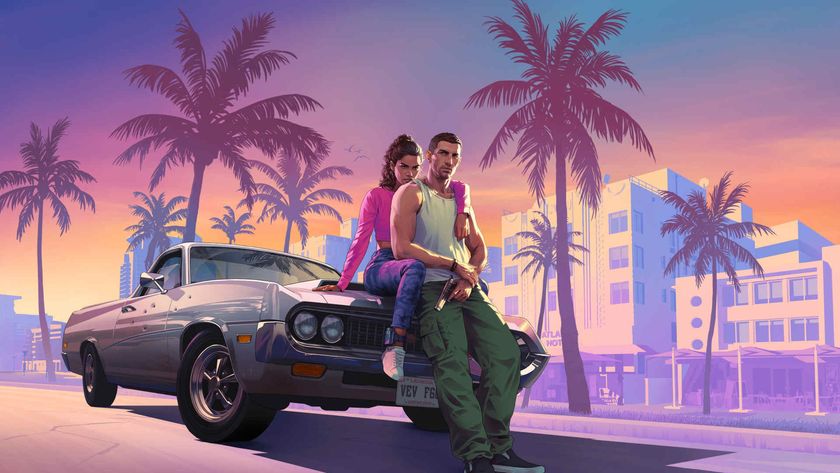
Ahead of GTA 6, Take-Two CEO says he’s “not worried about AI creating hits” because it’s built on recycled data: “Big hits […] need to be created out of thin air”
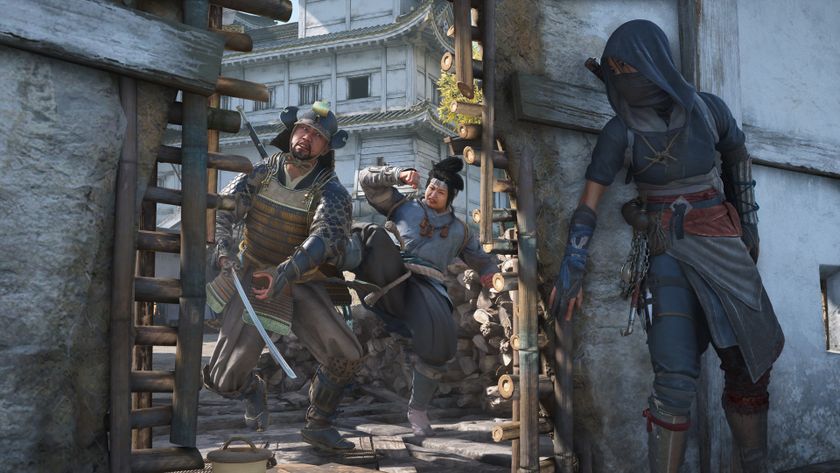
Assassin's Creed Shadows devs "actively looking at" an even harder difficulty mode for the RPG: "How challenging do you want it?"











